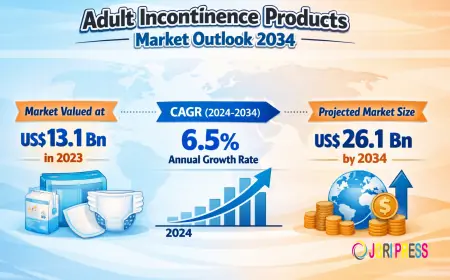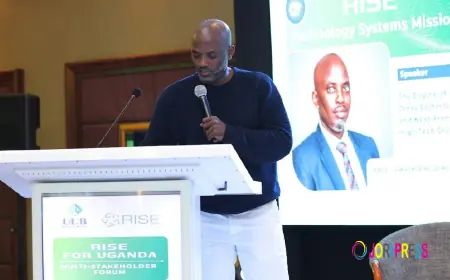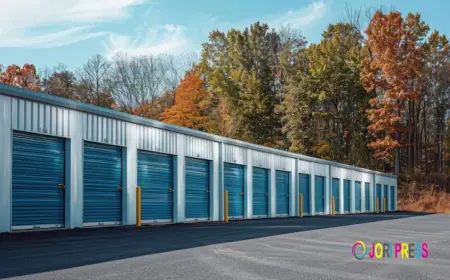How to Choose the Right Construction Management Consultant for Your Projec
Guidance on evaluating consultants based on experience, expertise, certifications, and client references.

Construction projects, whether commercial buildings, infrastructure, or residential developments, are complex endeavors that require careful planning, coordination, and oversight. A construction management consultant (CMC) can play a crucial role in ensuring your project is completed on time, within budget, and to the desired quality standards.
However, not all consultants are created equal. Choosing the right construction management consultant is vital for the success of your project. In this article, we’ll guide you through the essential factors to consider when selecting a consultant, helping you make an informed decision.
What Is a Construction Management Consultant?
A construction management consultant is a professional or firm specializing in overseeing construction projects, offering expertise in project planning, cost control, scheduling, risk management, and quality assurance. They act as advisors to project owners, developers, or contractors to streamline construction processes and optimize outcomes.
Why Hiring the Right Consultant Matters
The right consultant helps avoid costly delays, design errors, and miscommunications. They bring industry knowledge, technical skills, and experience to foresee potential issues and implement best practices. Conversely, an unsuitable consultant can cause project inefficiencies and cost overruns.
Key Factors to Consider When Choosing a Construction Management Consultant
1. Experience and Expertise
Experience is paramount. Look for consultants who have successfully managed projects similar in size, type, and complexity to yours. For instance, a consultant specializing in commercial high-rises may not be the best fit for a residential development.
Ask about:
-
Previous projects and their outcomes
-
Industry certifications (e.g., Certified Construction Manager (CCM), Project Management Professional (PMP))
-
Technical knowledge relevant to your project (structural, electrical, environmental)
A well-rounded consultant should be familiar with local building codes, regulations, and industry standards.
2. Reputation and References
Check the consultant’s reputation in the industry. Seek client testimonials, case studies, and independent reviews. Request references and speak directly with past clients to understand their satisfaction levels and the consultant’s communication style.
A consultant with a track record of transparent communication, problem-solving, and meeting deadlines is invaluable.
3. Range of Services Offered
Construction management encompasses various aspects, including:
-
Project planning and scheduling
-
Cost estimating and budget control
-
Procurement and contract management
-
Quality control and safety oversight
-
Risk assessment and mitigation
Ensure the consultant offers the specific services your project requires. Some firms provide end-to-end project management, while others focus on niche areas.
4. Communication Skills
Effective communication is critical in construction management to coordinate between architects, engineers, contractors, suppliers, and clients. Choose a consultant who communicates clearly, listens to your needs, and provides timely updates.
During initial meetings, assess their responsiveness and willingness to explain complex concepts in understandable terms.
5. Technological Proficiency
Modern construction projects increasingly rely on technology such as Building Information Modeling (BIM), project management software, and data analytics. A consultant proficient in these tools can enhance coordination, detect clashes early, and optimize resources.
Ask about the technologies they use and how these can benefit your project.
6. Budget and Fee Structure
Understand the consultant’s fee structure and ensure it aligns with your budget. Some consultants charge a fixed fee, others an hourly rate or a percentage of the project cost.
Be wary of unusually low fees, which may indicate compromises in quality or hidden costs.
7. Local Knowledge and Network
Consultants familiar with your project location can navigate local regulations, permit processes, and supplier networks more efficiently. This local insight can accelerate approvals and reduce risks.
Steps to Selecting the Right Consultant
Step 1: Define Your Project Needs
Clarify the scope, timeline, and budget of your project. Identify which consulting services are essential.
Step 2: Research and Shortlist Candidates
Use industry directories, professional associations, and referrals to compile a list of potential consultants.
Step 3: Request Proposals
Ask shortlisted consultants to submit proposals detailing their experience, approach, team qualifications, and fee estimates.
Step 4: Interview and Evaluate
Interview candidates to assess their compatibility with your project culture and communication preferences. Verify references and review past work.
Step 5: Negotiate and Formalize Agreement
Once you select a consultant, negotiate terms and sign a contract outlining deliverables, timelines, fees, and responsibilities.
Red Flags to Watch Out For
-
Lack of relevant experience or certifications
-
Poor communication or delayed responses
-
Vague proposals without clear methodologies
-
No references or negative client feedback
-
Overpromising results or unrealistic timelines
Trust your instincts. A transparent and professional consultant will build confidence from the outset.
Conclusion
Choosing the right construction management consultant is a strategic decision that can significantly influence the success of your construction project. By carefully evaluating experience, reputation, services, communication skills, and technological capability, you position your project for smooth execution, cost control, and quality outcomes.
Take the time to conduct thorough research, ask the right questions, and select a consultant who not only brings technical expertise but also aligns with your vision and working style. The right partnership will pave the way for a successful, stress-free construction journey.
What's Your Reaction?
 Like
0
Like
0
 Dislike
0
Dislike
0
 Love
0
Love
0
 Funny
0
Funny
0
 Angry
0
Angry
0
 Sad
0
Sad
0
 Wow
0
Wow
0









































